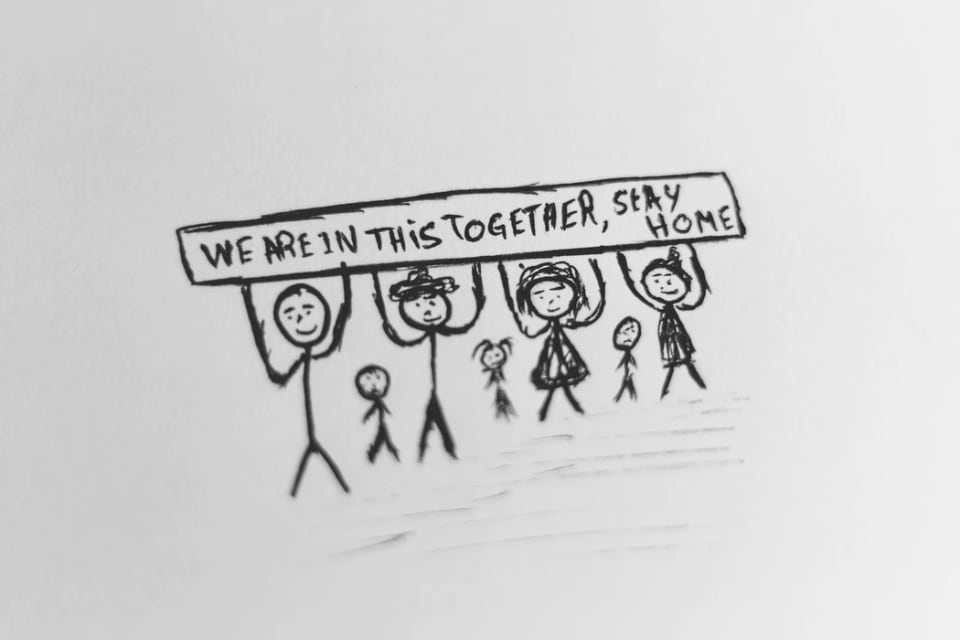How to keep culture strong when employees are forced to work remotely

It’s a challenging time. COVID-19 has forced significant changes with huge numbers of people now working remotely. It has happened quickly and caught a lot of companies unprepared.
What has this situation shown you about the culture of your business?
Culture is the attitudes and behaviours people adopt to fit in with the expectations of the people around them, or in the case of a remote workforce, the people they interact with. If someone new joins your company what attitudes would they develop and how would they behave in order to fit in with the expectations of the people they interact with?
To keep a culture strong you need your people expecting the right attitudes and behaviours from each other, which means the culture needs to be something they intrinsically support. It can’t be forced on them, it must be something they actively choose to participate in and encourage each other to achieve.
If you have been implementing a “culture change” program then you have probably been making some unfortunate mistakes. Telling people the culture needs to change suggests there is something wrong. People hear that as a criticism and immediately become suspicious. If you then impose a target culture their suspicion will turn to cynicism and defensiveness, which makes the whole process hard.
If you’ve added surveys, statistics, graphs, charts, and specific definitions and terms people won’t feel the strong personal connection you need to keep it strong when they are working remotely. In fact there is a strong chance that when you take the pressure off, or when they start working remotely, your culture will revert to where it started from, or worse.
A strong and resilient culture needs to be built on a foundation that will inspire people. It needs to be built on purpose.
Instead of talking about culture talk about the purpose of the company. Why do you exist? What contribution are you making in the world? What contribution are you making right now in the middle of this crisis?
People will gladly participate in this conversation, even remotely, because it’s a conversation they want to have. Deloitte’s 2019 “Global Human Capital Trends” report found that employees want a career, purpose, and meaning from their work. They don’t want to hear about how much money the company is making, they want to hear about the contribution you are making in the world because that gives their work meaning.
The trick is to align people with the purpose of the business. Ask leaders to talk to their teams, areas, departments, or sites about how their work supports the purpose of the business. Get the leaders to create a specific purpose for their team, one that supports the purpose of the business. This creates a more personal connection and intrinsic motivation for each person in the business.
Once you have done that you can ask people about the culture you will need to deliver the purpose. Specifically, what attitudes and behaviours are needed to achieve the company’s purpose?
These two conversations, what is our purpose, and what is the culture we need to achieve that purpose, will build an intrinsic motivation that will survive the geographical isolation inherent in a remote workforce.
The reason this is so powerful is because people are creating the right attitudes and behaviours for themselves. People commit to what they create, so if you get them to tell you what is needed it is far more likely to survive the challenges of working remotely.
The ideal process is to “A.D.A.P.T.” which stands for:
- Align with purpose: Get leaders in your company talking to their teams about how they support the purpose of the company.
- Discuss the culture you need to achieve that purpose and how you will build that culture remotely.
- Assess your current culture: This is best achieved through interviews and focus groups. They are the only way to get accurate and meaningful data about the attitudes and behaviours in the business.
- Plan how you will transition from your current to your target culture, and how you will review and evaluate your progress.
- Transform: Implement your plan and transform the culture and your business.
Creating a great culture is one of the most inspiring things you will do. When people align with purpose and discuss the culture they need to achieve that purpose anything is possible, and your culture has a much stronger chance of surviving the challenges of working remotely.
Written by Ross Judd. Have you read?
# America’s most luxurious hotels, 2020
# Happiest countries in the world, 2020
# World’s Richest Tech Billionaire CEOs For 2020
# Best wedding destinations in the World for 2020
# Best Business Schools In The World For 2020
Bring the best of the CEOWORLD magazine's global journalism to audiences in the United States and around the world. - Add CEOWORLD magazine to your Google News feed.
Follow CEOWORLD magazine headlines on: Google News, LinkedIn, Twitter, and Facebook.
Copyright 2025 The CEOWORLD magazine. All rights reserved. This material (and any extract from it) must not be copied, redistributed or placed on any website, without CEOWORLD magazine' prior written consent. For media queries, please contact: info@ceoworld.biz








